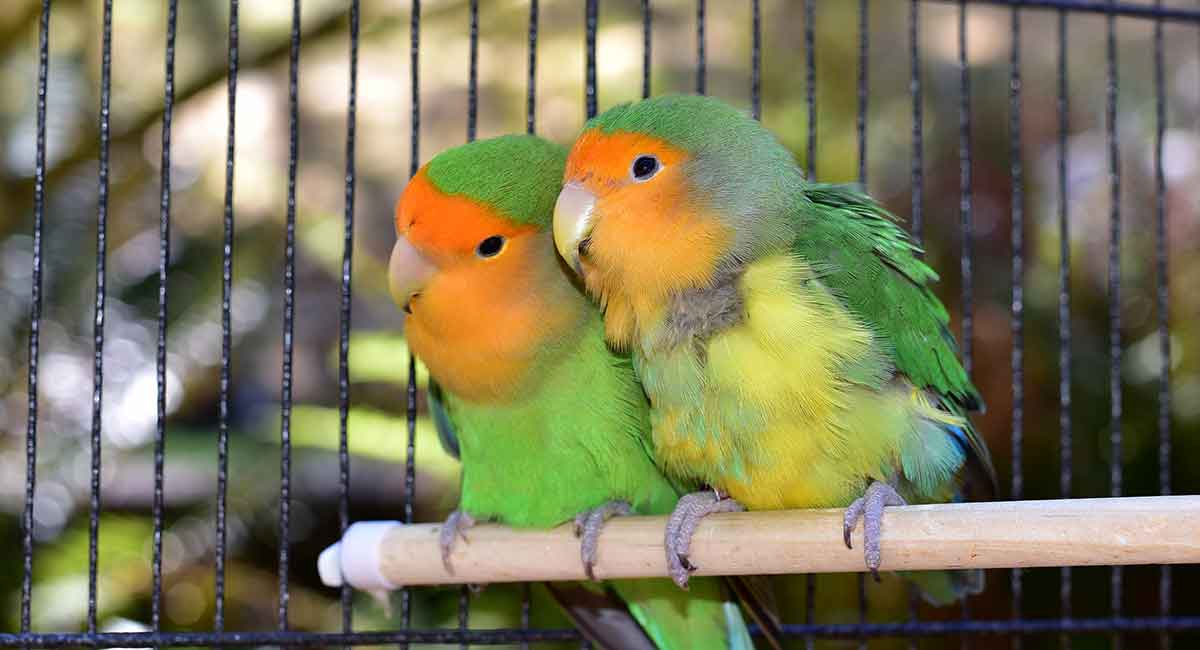Love Bird Care Sheet
Love Bird sheet – This care sheet contains recommendations from our shop assistants.
Feeding your Love Bird
Good quality love bird food should be provided. This can be purchased in-store and online. Replace any uneaten food every day. Bird grit should always be present within the cage as love birds cannot chew their food. Grit helps them grind their food in their stomach. Water should be always available. Clean it every day to keep water fresh and safe to drink. A variety of greens, fruit and vegetables should be offered daily to provide additional vitamins and minerals. Love birds will also enjoy egg food.
Housing
In a spacious aviary, you can house a pair of love birds or a small group. When housing a group of love birds make sure sufficient space is provided to limit the risk of fighting. All love birds should be brought as a pair. If you have one love bird, always introduce new mates in a separate cage, adjacent to them. Only introduce the love bird after a couple of weeks in the neutral ground, as the new bird will be viewed as an invader and attacked.
Love birds love to bathe therefore, a suitable bath bowl should be present within their cage in addition to fresh drinking water. They will bathe even during winter as it is essential for feather maintenance and general health.
Health issues
Like many captive birds’ species, love birds can suffer from feather plucking if they get stressed or bored. This often happens in birds that are kept alone and can be hard to stop. Love birds are also prone to egg-binding, which can be fatal and is caused by a lack of calcium. Female love birds should be offered additional calcium if they do not take in plenty of calcium in their diets.
Breeding
It is not advisable to allow love birds to breed until they are at least 12 months old, for long term health reasons. In the wild love, birds breed from January to April than June to July.
In captivity, a nest box should be provided to encourage breeding. Paper and twigs should be provided for your love bird to nest with, they will do this in their own time. A female love bird can lay up to 5 eggs and will incubate them for around 18-22 days. Once the chicks have fledged, they should be removed from the cage as the parents may see them as a threat to future broods.
We advise doing your own research if you are considering breeding.
For any further information or advice please feel free to message us on Facebook or contact the store on 01902 494860




